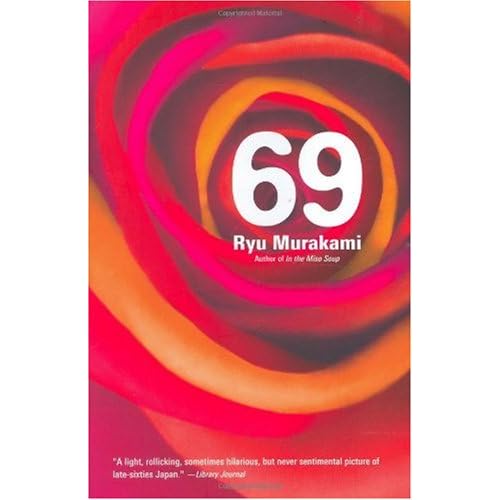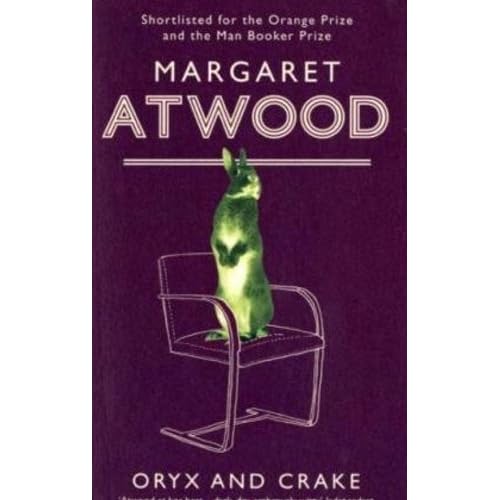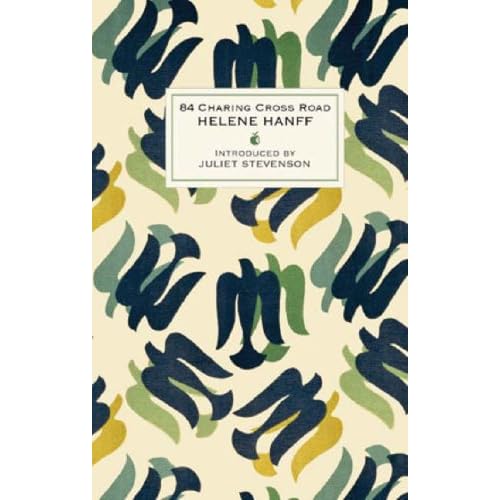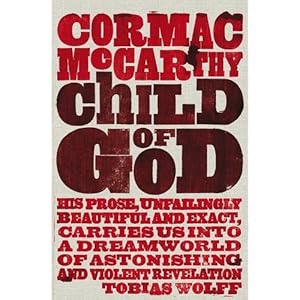 Set in London, against the backdrop of the subprime crisis and 7/7, Faulks' A Week In December takes place in the week leading up to Christmas in 2007. It's my first foray into the literary world created by Faulks, and I come out the other side marginally ambivalent.
The book follows one week in the life of a myriad of characters: a hedge-fund manager and a porn star, a footballer playing in a top-four club and a jihadist, a tube driver and a lawyer, and... well, there are many characters.
Set in London, against the backdrop of the subprime crisis and 7/7, Faulks' A Week In December takes place in the week leading up to Christmas in 2007. It's my first foray into the literary world created by Faulks, and I come out the other side marginally ambivalent.
The book follows one week in the life of a myriad of characters: a hedge-fund manager and a porn star, a footballer playing in a top-four club and a jihadist, a tube driver and a lawyer, and... well, there are many characters.
The scene is set with Sophie Topping, the wife of a recently elected Tory MP, contemplating the invitation list for a dinner she is hosting in honour of her husband winning a by-election. This contemplation is merely an effective plot device to introduce some of the characters, as the author lists them out in a bullet-form. Their relatives and friends make up the rest of the cast, with two villainous personalities getting the star-billing. And, the book screams London, so much so that it probably is one of the more important characters of the book - it puts everything in perspective, and it brings everyone together.
The question though is, what's so special about characters that this book attempts to bring together? What makes them click? What sets them apart? And, the resonating answer is - nothing. The characters are flat, bordering on stereotypically boring, and the events range from unbelievable to are you kidding me? For example, an uneducated Asian pickle manufacturer is about to receive an OBE, and feels that he is inadequate to meet the Queen, lest the Queen would want to discuss literature, so, he hires a book reviewer to bring him up to speed on literature. Then, there's the tube rider, who lives life to the fullest in the alternate reality internet world, Parallax, neglecting reality. And the lonely alcoholic-loving wife of a rich banker, whose teenage son is enjoying skunk while watching a reality TV show called It's Madness (based on Big Brother?). Oh, and the jihadists communicate with one another using a porn site, by encrypting their messages in one of the images - the model on the image unsurprisingly makes a real appearance in the book.
That said, at times I thought that Faulks really enjoyed writing the book, with present-day pop-culture references being thrown around, subtly. Subtle enough so that it's not in your face, but once you notice it, you appreciate it. For example, Girls From Behind is a popular girl band, and there's a reference to Lemon Brothers - an obvious nod to Lehman Brothers. Social networks play a role too, with YourPlace being the chosen website - not sure if that's meant to be Facebook or MySpace. And then of course, there is Pizza Palace and Orlando (which I believe is a reference to the girly dive-prone footballer, Cristiano Ronaldo). Some of the references do come across as a tad forced, but nonetheless, all things considered, it makes the book feel very 2007.
While the subtlety was appreciated, the narration of the story left much to be desired. A lot of research has gone into the book, and a couple of the story-lines had me quite curious, but the "telling" of the story came across as forced, and the way events transpired left me confused and unsure...
* START SPOILER ALERT *
In the end, the quasi-jihadist who goes through all the trouble to procure the raw materials to make multiple bombs to blow up a hospital in London redeems himself by dropping the bag of detonators in the Thames, whereas the banker, Veales, is shown as the true force of evil. The way he manipulates the markets in his favour, and almost single-handedly causes the collapse of one of the national banks is shocking - and in light of the subprime crisis, that's probably the reaction Faulks was going for. Wealth and riches are his only interests, while his wife, children, TV, socialising and sports take a back seat.
How much does Faulks hate the bankers? How heartless does he think it is? It almost seemed like he had a personal vendetta that he wanted to settle, and he used this book as the medium. We live in a world of shades of grey, but Faulks managed to create a fairly black and white world, and while I find it hard to sympathise with banks whose greed led to the global economic crisis in the first place, I also feel as though this book is looking at the industry from an extremely myopic point of view. It's inviting the readers to hate the industry, it's typecasting bankers into one fairly unforgiving category... whereas... whereas, a person willing to create a pure Islamic world manages to redeem himself with no regrets or repercussions. It's baffling, really.
The last line of the book further pushes the point: "As he stood with his hands in his pockets, staring out over the sleeping city, over its darkened wheels and spires and domes, Veals laughed."
Instantly, my thoughts went to The Fountainhead, which starts, "Howard Roark laughed." Roark is the epitome of all things pure and unadulterated, the un-mercenary, if you like. Yes, this could be purely coincidental, and unrelated, but it was almost like Veals was offsetting the righteous and oh-so-irreproachable Roark.
{the below extract is from the first page of Ayn Rand's The Fountainhead}
He stood naked at the edge of a cliff. The lake lay far below him. A frozen explosion of granite burst in flight to the sky over motionless water. The water seemed immovable, the stone flowing. The stone had the stillness of one brief moment in battle when thrust meets thrust and the currents are held in a pause more dynamic than motion. The stone glowed, wet with sunrays.
The lake below was only a thin steel ring that cut the rocks in half. The rocks went on into the depth, unchanged. They began and ended in the sky. So that the world seemed suspended in space, an island floating on nothing, anchored to the feet of the man on the cliff.
[...] He laughed at the thing which had happened to him that morning and at the things which now lay ahead.
He knew that the days ahead would be difficult. There were questions to be faced and a plan of action to be prepared. He knew that he should think about it. He knew also that he would not think, because everything was clear to him already, because the plan had been set long ago, and because he wanted to laugh.
* END SPOILER ALERT *
It wasn't a comfortable read, by any stretch of the imagination, for there was no middle ground. Everyone and everything was over the top. The characters were dislikable, and even if this was all in the name of satire, one's got to wonder why the satire makes everything seem so bleak? In the twenty-first century, are we so doomed?
One of the reviews at the back of my copy reads:
The 19th century gave us Thackeray's Vanity Fair, Dickens's Our Mutual Friend and Trollope's The Way We Live Now; the 21st century has given us Sebastian Faulks's A Week In December.
If I may be so bold to say that the above statement is overtly generous, I would be understating the reality, and I make that comment despite never reading anything by Trollope. I want to read more by Faulks for I don't think this was anything close to his best, but I don't know where to start? Birdsong? Engleby? Human Traces? Or...? What would you recommend?
 The vibrant cover of this book caught my attention while I was drifting through eighteen miles of books in New York a couple of months ago, and I ended up purchasing it. In The Miso Soup and Piercing have been on my radar for a few months, but considering that this is semi-autobiographical, I thought that it's a good place to start.
The vibrant cover of this book caught my attention while I was drifting through eighteen miles of books in New York a couple of months ago, and I ended up purchasing it. In The Miso Soup and Piercing have been on my radar for a few months, but considering that this is semi-autobiographical, I thought that it's a good place to start. I read this as part of Japanese Literature Challenge V hosted by the lovely Belleza. Pop over to read more reviews on books by Japanese authors, and do join in! The more Japanese authors I read, the more I want to read, so... this is great! Also, obviously, if you have any recommendations, please do let me know. I feel some Ogawa and Mishima coming up...
I read this as part of Japanese Literature Challenge V hosted by the lovely Belleza. Pop over to read more reviews on books by Japanese authors, and do join in! The more Japanese authors I read, the more I want to read, so... this is great! Also, obviously, if you have any recommendations, please do let me know. I feel some Ogawa and Mishima coming up... Téa Obreht, at the age of twenty-five, won the
Téa Obreht, at the age of twenty-five, won the  Junky is William S. Burroughs semi-autobiographical story, about being a drug-addict - a "junky," if you will - in the 1940s in the good ol' US of A. At less than two hundred pages, this is an extremely short, albeit insightful read.
This first-person narrative is an unapologetic unemotional documentary of Burroughs' experiences, the friends he made, and the encounters with the law, as they tried to clamp down on drugs, addiction and peddling, with the help of "pigeons".
Junky is William S. Burroughs semi-autobiographical story, about being a drug-addict - a "junky," if you will - in the 1940s in the good ol' US of A. At less than two hundred pages, this is an extremely short, albeit insightful read.
This first-person narrative is an unapologetic unemotional documentary of Burroughs' experiences, the friends he made, and the encounters with the law, as they tried to clamp down on drugs, addiction and peddling, with the help of "pigeons". Set in London, against the backdrop of the subprime crisis and 7/7, Faulks' A Week In December takes place in the week leading up to Christmas in 2007. It's my first foray into the literary world created by Faulks, and I come out the other side marginally ambivalent.
The book follows one week in the life of a myriad of characters: a hedge-fund manager and a porn star, a footballer playing in a top-four club and a jihadist, a tube driver and a lawyer, and... well, there are many characters.
Set in London, against the backdrop of the subprime crisis and 7/7, Faulks' A Week In December takes place in the week leading up to Christmas in 2007. It's my first foray into the literary world created by Faulks, and I come out the other side marginally ambivalent.
The book follows one week in the life of a myriad of characters: a hedge-fund manager and a porn star, a footballer playing in a top-four club and a jihadist, a tube driver and a lawyer, and... well, there are many characters.
 Ghostwritten is David Mitchell's first novel, and on finishing it, I've now read all his works, which pleases me greatly. Of course, the fact that this is a tremendous debut adds to the pleasure, albeit, I really do wish there was another Mitchell on my shelf, just waiting to be read.
The sub-title of the book reads, "a novel in nine parts," and so it is. It could easily a collection of nine short stories, each told in first person by a different narrator, who seemingly have nothing to do with the previous narrator(s). However, six degrees of separation (or fewer) bind the characters together, through time and different geographical locations. The link between the characters isn't blatantly evident though, as one might come to expect from Mitchell, and at times, it's confusing as to how the characters come together, and to figure out if there is any kind of causal sequence. That said, one can't help but anticipate the revelation of the link, and then deliberate over it for a bit, which in turn means that one can't help but read the book, scrutinising almost every word to see where the link lies.
Ghostwritten is David Mitchell's first novel, and on finishing it, I've now read all his works, which pleases me greatly. Of course, the fact that this is a tremendous debut adds to the pleasure, albeit, I really do wish there was another Mitchell on my shelf, just waiting to be read.
The sub-title of the book reads, "a novel in nine parts," and so it is. It could easily a collection of nine short stories, each told in first person by a different narrator, who seemingly have nothing to do with the previous narrator(s). However, six degrees of separation (or fewer) bind the characters together, through time and different geographical locations. The link between the characters isn't blatantly evident though, as one might come to expect from Mitchell, and at times, it's confusing as to how the characters come together, and to figure out if there is any kind of causal sequence. That said, one can't help but anticipate the revelation of the link, and then deliberate over it for a bit, which in turn means that one can't help but read the book, scrutinising almost every word to see where the link lies. The Amazing Adventures of Kavalier and Clay is well - amazing. Not only does this book celebrate the "great, mad, new American art form" and pays a tribute to the spirit of Americana in the 1930s, it simultaneously depicts the despair in Europe during the second World War, and how incredibly disconcerting the war was - both, for the people who had to live it, as well as the people who managed to escape it.
Eighteen year old Josef Kavalier flees Prague in the golem's coffin, leaving his family behind, and ends up in Brooklyn, New York, where he's forced to bunk with his seventeen year old cousin, Samuel Klayman (Clay). The cousins, both aspiring artists, hit it off immediately, and Clay introduces Kavalier to the wonderful world of comic books - in an age where Superman has just hit the stands, where the comic book obsession is rampant, and where there's big bucks to be made, the cousins decide to create their very own super-hero to rake in the money.
The Amazing Adventures of Kavalier and Clay is well - amazing. Not only does this book celebrate the "great, mad, new American art form" and pays a tribute to the spirit of Americana in the 1930s, it simultaneously depicts the despair in Europe during the second World War, and how incredibly disconcerting the war was - both, for the people who had to live it, as well as the people who managed to escape it.
Eighteen year old Josef Kavalier flees Prague in the golem's coffin, leaving his family behind, and ends up in Brooklyn, New York, where he's forced to bunk with his seventeen year old cousin, Samuel Klayman (Clay). The cousins, both aspiring artists, hit it off immediately, and Clay introduces Kavalier to the wonderful world of comic books - in an age where Superman has just hit the stands, where the comic book obsession is rampant, and where there's big bucks to be made, the cousins decide to create their very own super-hero to rake in the money. It was in
It was in  I hadn't read anything by Palahniuk until I read this little gem. I still recall purchasing this book at Waterstones: initially, the plan was to pick up
I hadn't read anything by Palahniuk until I read this little gem. I still recall purchasing this book at Waterstones: initially, the plan was to pick up  If there ever was a perfect book, this would be it. Yes, I know that's an extremely strong and subjective statement, but I don't think many people who have read this will disagree. It's feel-good, happy, and just... perfect.
84 Charing Cross Road revolves around two people living halfway across the world from one another, with their warmth, kindness, generosity, and love of books bringing them together. The book is a series of real letters exchanged between the two of them over a period of twenty years, starting in October 1949.
If there ever was a perfect book, this would be it. Yes, I know that's an extremely strong and subjective statement, but I don't think many people who have read this will disagree. It's feel-good, happy, and just... perfect.
84 Charing Cross Road revolves around two people living halfway across the world from one another, with their warmth, kindness, generosity, and love of books bringing them together. The book is a series of real letters exchanged between the two of them over a period of twenty years, starting in October 1949. I loved
I loved  This is the fifth book by
This is the fifth book by